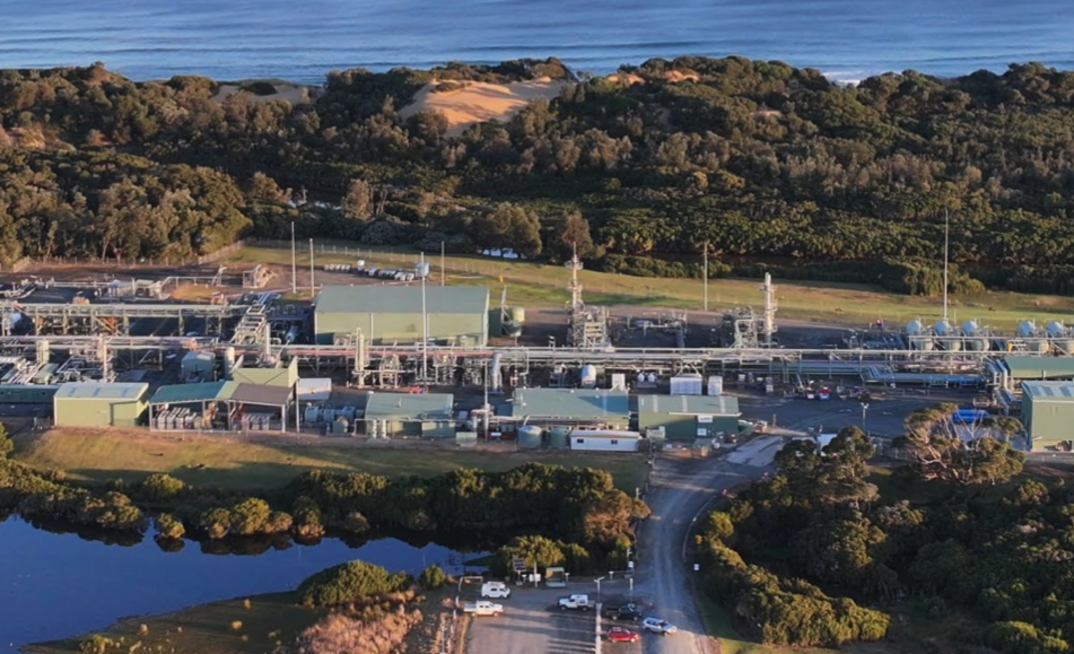With a potential east coast gas shortfall looming by 2026, Cooper Energy's CEO Jane Norman is advancing plans to optimise and expand the company's production capacities across its Orbost and Otway Basin assets.
Since her appointment in March 2023, Norman has made significant strides in addressing longstanding operational challenges, particularly at the Orbost Gas Processing Plant, which has struggled with reliability since its initial redevelopment by APA in 2017 and subsequent repurchase by Cooper in 2022.

"Since reacquiring Orbost, our focus has been on performance and reliability, leading to record production and earnings by August 2023," Norman explains.
YOU MIGHT ALSO LIKE
"But continuous improvements are essential to maintain a stable and increased gas supply for the region."
The company reported a 23% production increase over the last quarter, inching closer to the plant's nameplate capacity of 68 terajoules per day. It is currently targeting production stability.
To tackle these optimisation challenges, Cooper has enlisted Chad Wilson, a seasoned project development and production leader. With more than two decades of experience at Talisman Energy and Santos, Wilson is leading efforts to extend gas absorber lifespans, refine sulphur processing, and streamline maintenance protocols under the Orbost Performance Improvement Project.
"Incremental debottlenecking is essential as we refine processes to achieve reliable output levels," Norman notes.
Expanding east coast supply through Otway Basin
As part of its long-term strategy, Cooper Energy is also expediting its East Coast Supply Project, which aims to add nearly 90 terajoules per day to the domestic market by leveraging Otway Basin infrastructure.
Pending environmental and regulatory approvals, the company plans a three-well drilling program set to commence in FY26, which could meet the equivalent energy needs of 600,000 Victorian homes.
"Our East Coast Supply Project builds on existing infrastructure to enhance domestic gas availability," says Norman.
"We're on track to bring these additional resources online by 2028, pending final approvals and strategic partnerships."
Targeting domestic supply for residential and industrial use
Norman says her company is committed to supplying the domestic market, particularly for the colder southern states, where gas plays a vital role in heating homes and powering industrial facilities.
With manufacturing accounting for nearly 40% of southern states' gas demand, she points out that gas remains indispensable for industries reliant on high-temperature processes.
"Gas is critical to Australia's industrial backbone," she says. "Increasing local supply not only supports these sectors but helps stabilise prices and reduce dependence on imports."
Navigating policy and regulatory hurdles
Forecasts from the Australian Energy Market Operator (AEMO) highlight an anticipated increase in gas-fired power needs, projecting capacity requirements of up to 15 gigawatts by 2050 under the Step Change Scenario.
"AEMO's forecasts underscore the mounting urgency for a secure domestic energy supply, says Norman. "The industry is poised to address this need, but a stable regulatory environment is crucial to ensuring sustained reliability," highlighting the need to bolster energy resources in Australia's southern states, where traditional supplies, such as the Bass Strait, are waning.
























